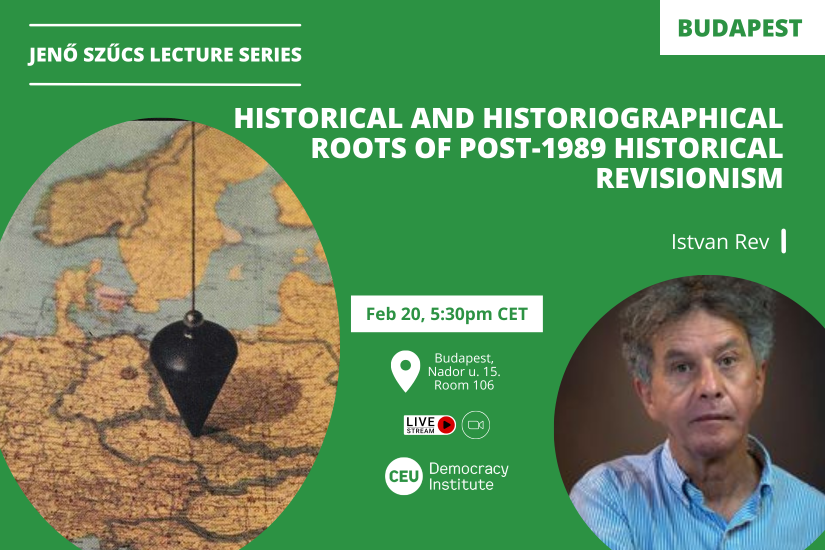
The CEU Democracy Institute’s Democracy in History Workgroup launched a public lecture series to bring together international as well as local scholars of history and related fields in Budapest as well as online to exchange their results on the interplay between democracy and histor(iograph)y in a broad sense. The series’ title honors the legacy of historian Jenő Szűcs, an advocate of recognizing Central Europe as a historical region and a major critic of the misuses of national past in his native Hungary.
Registration required for on-site as well as online participants here. The Zoom link will be sent to those who register.
Abstract:
The lecture will follow the birth and blossoming of the politically and historiographically motivated revisionist interpretation of the French Revolution from the mid-1960s; the dubious success and pitfalls of the totalitarian frame of interpretation; how the neo-Tocquevillian interpretation tainted and made the Revolution (and as a consequence, all previous and future revolutions) suspicious. It will point out the specific roots of the totalitarian frame in the Eastern and Central Europe of the 1970s–1980s, and especially after the Millennium. The lecture will identify the local sources of this interpretation in the frenzy of competitive victimhood and will discuss the process by which the Holocaust became indistinguishable from Communism in certain discourses, which turned the Gulag into a ”counter-Auschwitz” – and which, as the ultimate result, robbed the past of its history. The lecture will also describe the process through which post-war communist revisionism of anti-fascism prepared the ground for that post-1989 anti-anti-fascism which contributed to “taming” fascism and making it indistinguishable from communism. It will show how the perception of ”victimhood” – previously considered a stigma, a sign of feebleness, the weakness of willpower – changed due to the joint efforts of Holocaust scholars, Vietnam veterans, psychotherapists, and psychoanalysts, and how it became a platform for elevated historical and social status, the basis and ambition of historical revisionism.
About the speaker:
István Rév is Professor of History and Political Science at the Central European University, and the Director of the Vera and Donald Blinken Open Society Archives. He was a founding member in 1984 of the Danube Circle environmental organization, and is a past winner of the Right for Livelihood Award (the alternative Nobel Prize) of the Swedish Parliament. He has been a fellow of the Institute for Advanced Study in Princeton, and a research fellow at the Getty Center in Los Angeles and at the Center for Advanced Studies in the Behavioral Sciences at Stanford. In 1995, he was the recipient of the New Europe Prize. He is a member of the Open Society Foundations’ Global Board. His scholarly interests include historical amnesia, memory, historical anthropology, and documentary traces of the past. His many publications include Retroactive Justice: Prehistory of Post-Communism (Stanford, CA: Stanford University Press, 2005).